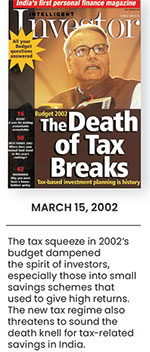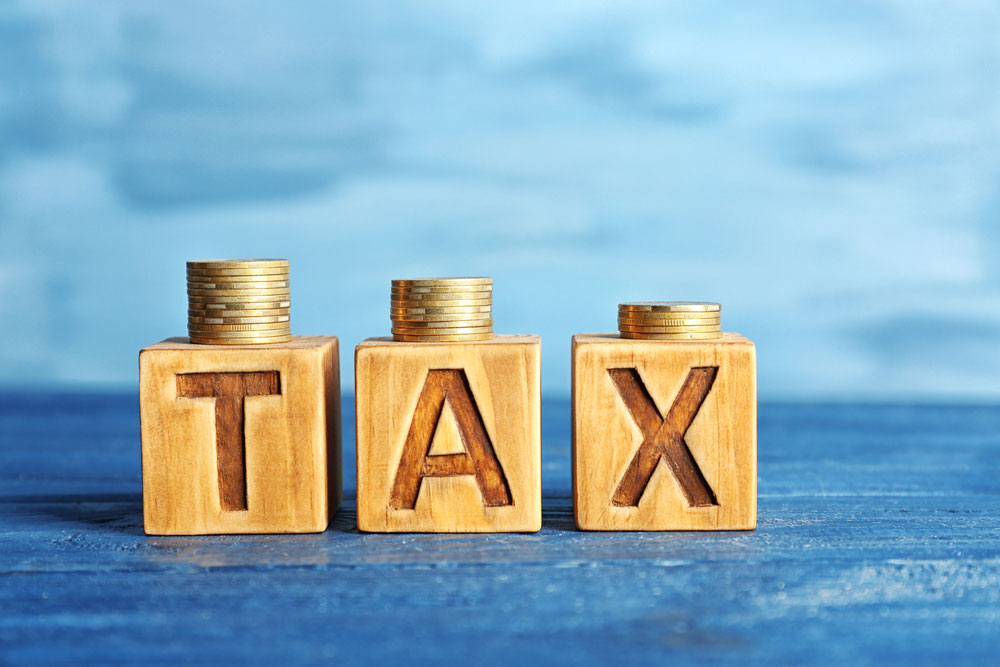The new tax regime is different from the old one in two ways. First, it has more tax slabs with lower tax rates. Second, all the major exemptions and deductions available to taxpayers in the existing (old) tax regime are not allowed in the new tax regime.
 Hence, where the advantages of lower rates in the new tax regime outruns the benefit of the exemptions and deductions available under the old tax regime, the taxpayer can choose the new tax regime.
Hence, where the advantages of lower rates in the new tax regime outruns the benefit of the exemptions and deductions available under the old tax regime, the taxpayer can choose the new tax regime.
To know which tax regime is better, the taxpayer should calculate the income tax liability between the two regimes. There is no fixed category of taxpayers for whom it can be clearly specified which tax regime is better. It will vary depending on the deduction or exemption the taxpayer can claim in the particular year.
For the old regime, calculate tax at the old tax slab rates after availing all the eligible exemptions and deductions from the income. For instance, salaried individuals can claim exemption for leave travel allowance (LTA), housing rent allowance (HRA) and standard deduction of Rs 50,000. Also, individuals are allowed to claim deduction under Section 80C up to Rs 1.5 lakh and additional deduction of Rs 50,000 under Section CCD (1B) for contribution to the National Pension System (NPS), as well as those under Section 80D, and deduction for interest paid on home loans, etc. For the new regime, take the lower tax slabs and calculate accordingly.

We have observed that most taxpayers benefit from being in the old regime when they maximise Section 80C and go for tax deductions and benefits available in their salary structure, such as claiming HRA, receiving a part of the CTC as reimbursements, etc. The taxpayers who do not prefer to invest in tax-saving instruments and are not eligible for any exemptions from income may choose the reduced slab rates of the new tax regime.

Individuals with income under the head ‘salary’, ‘house property’, ‘capital gains’ and ‘other sources’ can switch between the old or new tax regimes every year, but individuals who have income from business or profession get only one chance to return to the old regime after they opt for the new tax regime.

Which Products Help Save Tax In Old Regime?
To start with, optimise your salary from your employer so that you are able to make the most of the exemptions and deductions available to you. One of the best ways to reduce your taxable income is by making full use of the deduction limit available under Section 80C. There are a lot of investment options that you can choose from. These include, equity-linked savings scheme (ELSS), Public Provident Fund (PPF), and five-year fixed deposits, among others. You could start by investing small amounts through a systematic investment plan (SIP) in ELSS or multiple small deposits in PPF.
Many taxpayers also claim deductions on 80D for health insurance and 80TTA on interest earned from savings accounts. Another thing to be mindful of is to claim the tax benefits being offered by your employer. If your employer allows reimbursements etc., those can reduce your overall taxable income. If you are living on rent, you can claim HRA (under the old tax regime). Likewise, you can also invest in NPS and claim benefit from tax deductions under Section 80CCD(1B) towards self-contribution and under Section 80CCD(2) for contributions made by employers. Incidentally, deduction on employer contribution is available under both the old and new tax regimes.
What’s The Role That Taxation Plays In Investments And How?
Taxation offers an important perspective for an investor to look at investments, however it is not the only one. There are other factors, such as the risk-taking ability of the investor, overall financial goals, lock-in period of the investment, time horizon available to invest, and allocation of portfolio that should be considered.
 Sometimes, taxpayers make the mistake of choosing investment products purely on the basis of the tax benefits they offer. However, they often end up with products that either don’t align with their goals or offer subpar returns. A classic example of this would be insurance policies. Investors often do not understand the returns offered by insurance policies, but they still get trapped in them just because they offer tax benefits.
Sometimes, taxpayers make the mistake of choosing investment products purely on the basis of the tax benefits they offer. However, they often end up with products that either don’t align with their goals or offer subpar returns. A classic example of this would be insurance policies. Investors often do not understand the returns offered by insurance policies, but they still get trapped in them just because they offer tax benefits.
An investor with a very long-term horizon may be better off with investing in equity as compared to products that offer a fixed rate of return in the short run, and which may be exempt from tax, as the returns from equity will be higher in the long term. As an investor, it is important to considers all the factors listed above (and not just taxes) before choosing an investment product.
Those opting for the new regime may not need to worry about tax-saving investments at all.
Archit Gupta, CEO, Clear







